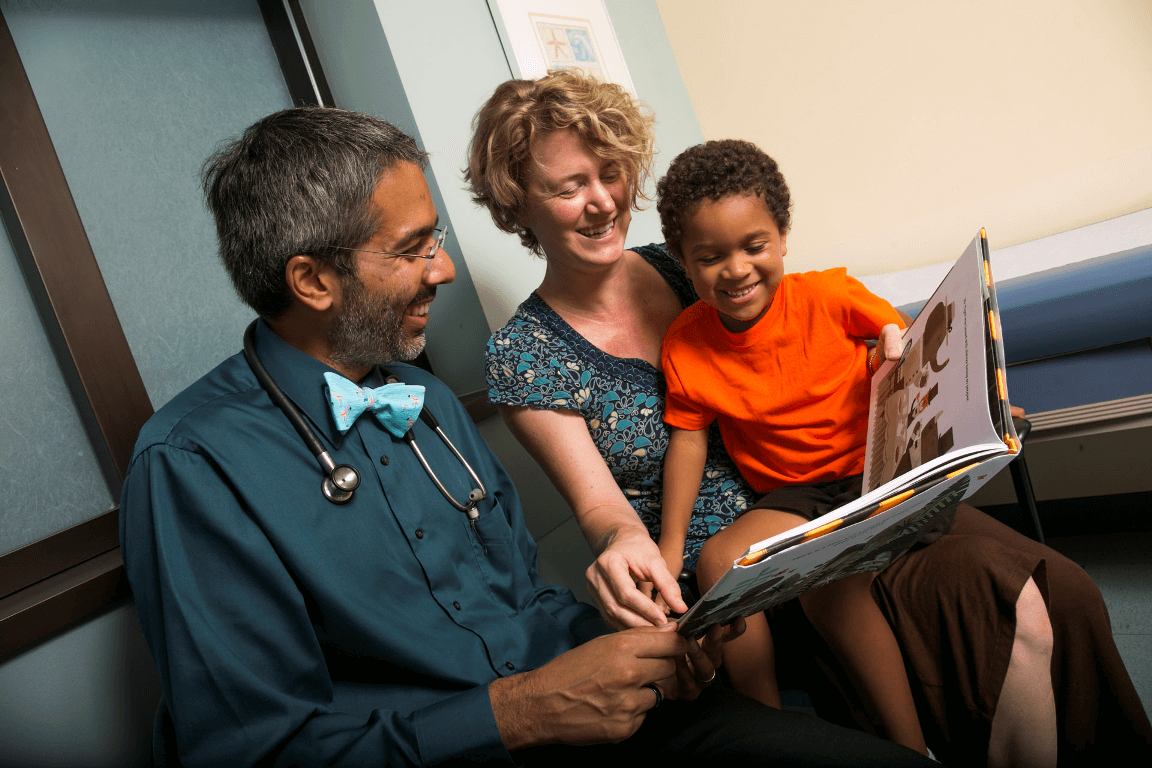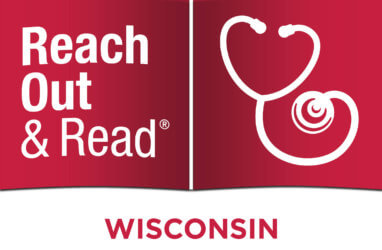This article was originally published by the Cap Times on April 23, 2018.

Recently, I encountered a new-to-Wisconsin mother and toddler who had left behind a not-so-good environment. As we established trust with one another, it came out that she was concerned about her child’s mild speech delay. The upheaval in their lives meant they hadn’t been able to find a primary care clinic and schedule his regular checkups yet. What could I do that might offer some immediate benefit for them?
As many know, I do a lot of work around early literacy promotion. In the last few weeks, there have been two relevant, notable studies released in this field. The first article is a meta-analysis — a combining of several studies together — showing interventions in parent-child shared reading have clear benefits, not just to the child’s language and literacy skills (we’ve known this for some time), but also psychosocially. There were better social and emotional skills and improved behavior in the children. Less expected was the benefit to parents, who had less stress, less anxiety, and greater confidence in their ability to parent.
The second study was on the Video Interaction Project (created by an NYU friend and colleague, Dr. Alan Mendelsohn). It uses video recording of a parent playing and reading with their child, followed by watching the recording together with a parenting coach who points out notable moments in the interaction. The researchers found decreases in child aggression, hyperactivity, and difficulty with attention.
These both support the value of working on early literacy skills, the foundation of the almost-30-year-old Reach Out and Read program, which makes discussion about early literacy an integral and routine part of checkups in early childhood. (Note: I am the founding medical director of Reach Out and Read Wisconsin, and serve on the national board.)
However, I’d like to point out that these studies emphasize a critical element that’s not always present in the countless literacy programs out there. While you may view Reach Out and Read as a child literacy program, it’s really secretly a parenting program: a program designed to gently and collaboratively support strong shared reading between a parent and a child.
I don’t object to programs that bring high-quality books into a child’s home, but that emphasis is often misplaced; the book itself does little if handed to a child without any other interaction. A child learns the magic and power of reading only when a loving, nurturing, responsive caregiver (usually a parent, but could be anyone) reads aloud with them. A book that sits on the shelf is useless — it only does its magic when open in the hands of a parent and child reading together.
Equally important is a parent who knows how to read effectively to a young, squirmy toddler, a technique known as dialogic reading. Simply reading at a child doesn’t work for a child with a naturally short attention span. Knowing how to read with them and interact is an important learned skill. Merely providing books accomplishes only part of the job — supporting parenting confidence is absolutely essential.
It’s not just about the books. It’s about the act of reading together. A book without a caring adult…is just a book.
The key point: Parents benefit most when we offer clear modeling, coaching and encouragement. It’s not enough to say what to do; careful intentional skill-building is crucial for success. This explains the incredible outcomes seen from high-quality home visiting programs, for example. So question projects and recognize that they are not all the same. Ask yourself if they merely provide resources or whether they are building capabilities or capacities in families
So what of the family I encountered? I took the board book we had given him and pointed out her child’s brief interactions with the book. Then I modeled talking about illustrations and I reassured her that his turning away quickly was just his normal short attention span. Finally, I complimented her on her good parenting when she described how he would bring a book to her and “ask” to be read to.
She beamed with pride. And that’s how I knew we were doing right by her.







